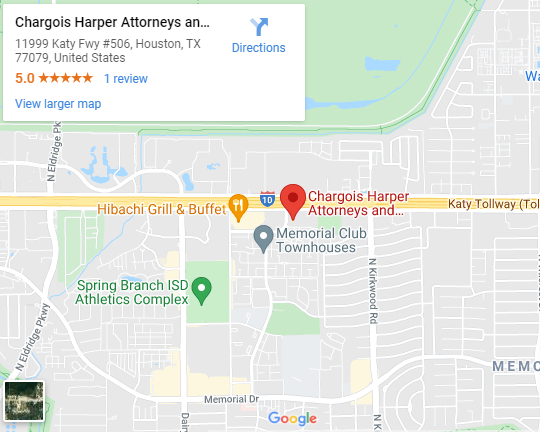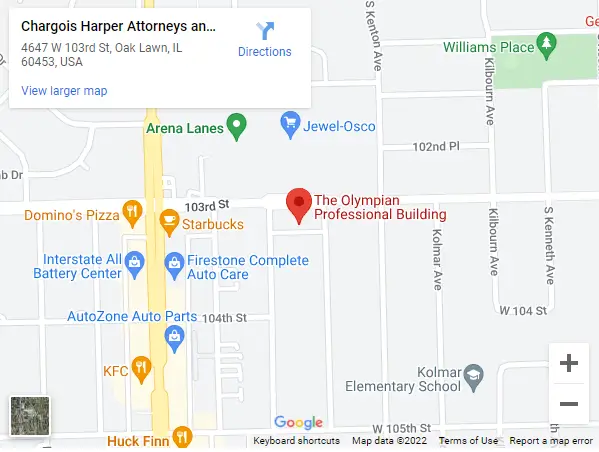How Long Does Probate Take?
Probate Timeline Briefly Explained
When a person dies, his or her estate must pass through a legal process known as probate. Probate is a court-supervised process that legally recognizes a deceased person’s death, pays their outstanding debts, and distributes remaining assets to their beneficiaries. The process is designed to facilitate the transfer of a deceased person’s estate and protect both beneficiaries’ and creditors’ interests in the decedent’s estate.
Probate is an expensive and lengthy process. Several factors typically determine how long the probate process will take. If the estate includes real estate property that takes a while to sell, or if there are complicated taxes or other issues, probate can last much longer. These issues will complicate the process and will require more time because the court will become even more involved.
Keep reading to learn about the timeline of the Texas probate process, and how our skilled Houston probate lawyer at Chargois Harper Attorneys and Counselors At Law can help make this process easier for you and your family. This article can give you an overview of how probate works, how long it takes, and what circumstances can extend this period.
- Typical Duration of Probate in Texas
- Petition the Court to Open a Probate Case
- Hearing on Petition to Appoint an Executor of the Estate
- File an Estate Bond
- Give Notice to Beneficiaries and Creditors
- Take Inventory of All the Assets
- Pay Valid Debts
- Distribute Assets to Beneficiaries
- Close the Estate
Typical Duration of Probate in Texas
 Each state has its laws on probate proceedings, and the time to probate an estate may vary. Some estates settle or close within a few months, or even a few weeks. Others can take a year or longer. Our reliable Houston probate attorney can explain how long the probate process generally takes in Texas.
Each state has its laws on probate proceedings, and the time to probate an estate may vary. Some estates settle or close within a few months, or even a few weeks. Others can take a year or longer. Our reliable Houston probate attorney can explain how long the probate process generally takes in Texas.
A typical timeline for a probate proceeding in Texas, from filing the application to distributing the assets, is about 9 to 12 months. However, exactly how long probate takes will depend on many factors, such as the complexity of the estate, the presence of a will, and whether a family conflict exists.
Petition the Court to Open a Probate Case (1 to 4 months)
In most cases, the executor has 4 years from the date of the testator’s death to file for probate. If the executor fails to file the will within this period, the Texas intestate succession laws will control the distribution of the estate’s assets. A will is usually probated 2 months to 1 year after the death of the estate owner.
To begin the probate process, the executor must prepare and file a “petition for probate” or a “petition for letters of administration” by:
- Submitting the decedent’s original will and any witness statements to the probate court
- Identifying all beneficiaries, heirs, and interested parties of the estate
- Providing the probate court with the contact information of all interested parties so that service of notice and process can be completed
Hearing on Petition to Appoint an Executor of the Estate (3 to 4 months)
In most states, a hearing may be required to appoint an executor or personal representative. After filing the will for probate, he or she must wait 10 days to schedule a hearing. In Texas, the hearing usually takes place on the Monday after the expiration of 10 days. This delay allows the court to notify the public that the will was filed for probate.
File an Estate Bond (3 to 5 months)
In some cases, the court might require a bond before issuing letters of administration. Upon receiving the estate bond, it must be brought to the court and the court will then issue letters of administration.
Give Notice to Beneficiaries and Creditors (3 to 6 months)
The executor has 60 days to provide a written notice to creditors and all beneficiaries named in the will to notify of the probate administration. The creditors will be given a time frame to submit a claim against the estate. A trusted Houston probate attorney can help you prepare the necessary documents for this part of the process.
Take Inventory of All the Assets (6 to 12 months)
The next step is to complete an inventory of all the assets and calculate the value of the estate. This process can take several weeks or months, depending on the size of the estate. This part of the process can take several months based on the size of the estate and the types of property owned.
Pay Valid Debts (6 to 12 months)
Once the deadline has been reached for a creditor to make a claim, the executor will start paying the debts. This may include:
- The decedent’s final medical expenses
- Funeral expenses
- Legal fees associated with opening the estate
- Estate administration costs
- Property taxes on any real estate property
- Family allowances
- Federal income tax, state income tax, federal estate tax, and gift taxes
Distribute Assets to Beneficiaries (9 to 18 months)
After paying estate claims, debts, and taxes, the remaining assets will now be distributed to the beneficiaries named in the will. Without a will, the assets will be distributed according to Texas intestate succession laws.
Close the Estate (9 to 24 months)
To close probate, the executor files a final accounting report with the court which includes all the assets of the estate, income generated on those assets, debts paid, and distributions made to beneficiaries. When the court accepts this report, they discharge the executor from their probate duties and formally close the probate estate.
Learn How Our Experienced Probate Attorney Can Help!
Probate takes a few months, on average. However, the timeline can expand into years if there are disputes involving an heir or creditor who files claims against the estate. The longer the probate process is, the more expensive it becomes.
The process involves several complicated laws and procedures, which makes it important to work with our seasoned Houston probate lawyers at Chargois Harper Attorneys and Counselors At Law. Our estate planning law firm will be by your side to help the process move quickly, which can benefit everyone involved. We can help with the probate proceedings in many ways, including providing guidance during probate litigation and assisting an executor in fulfilling their responsibilities.
We have the competence and qualifications needed to help you fulfill your loved one’s wishes as seamlessly as possible. Contact our law office now and schedule an initial consultation with our credible Houston estate planning lawyers to learn more about Texas probate.
Visit Us:

You can count on us to protect your interests and resolve your legal concerns in Texas & Illinois.
Facing legal family disputes in Texas?
Dealing with legal disputes can be complicated and overwhelming, especially when it can affect you and your family, but you don't have to face it alone. Whether it's divorce, child support, custody and visitation, or guardianship, our Houston family law attorneys at Chargois Harper have the knowledge, experience, and compassion to help you through your family law case.
Houston Office
11999 Katy Freeway #506
Houston, TX 77079
Illinois Office
4647 W. 103rd Street, Oak Lawn Illinois 60453
Get Help From Our Illinois & Texas Attorneys
All the information on this website – www.chargoisharper.com – is published in good faith and for general information purposes only. Chargois Harper Attorneys and Counselors at Law does not make any warranties about the completeness, reliability and accuracy of this information. Any action you take upon the information you find on this website (Chargois Harper Attorneys and Counselors at Law), is strictly at your own risk. Chargois Harper Attorneys and Counselors at Law will not be liable for any losses and/or damages in connection with the use of our website.
Copyright © 2024 Chargois Harper Attorneys and Counselors at Law - All Rights Reserved. | Powered by Advantage Attorney Marketing & Cloud Solutions




